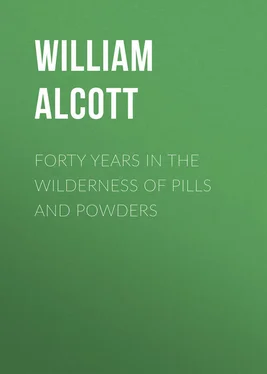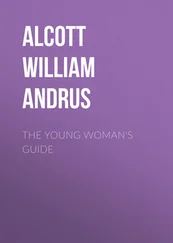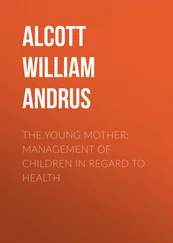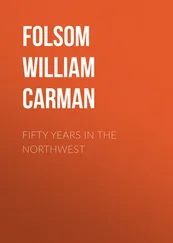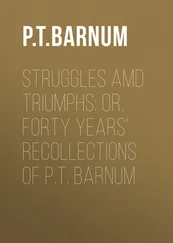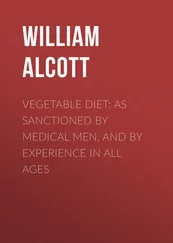William Alcott - Forty Years in the Wilderness of Pills and Powders
Здесь есть возможность читать онлайн «William Alcott - Forty Years in the Wilderness of Pills and Powders» — ознакомительный отрывок электронной книги совершенно бесплатно, а после прочтения отрывка купить полную версию. В некоторых случаях можно слушать аудио, скачать через торрент в формате fb2 и присутствует краткое содержание. Жанр: foreign_antique, foreign_prose, на английском языке. Описание произведения, (предисловие) а так же отзывы посетителей доступны на портале библиотеки ЛибКат.
- Название:Forty Years in the Wilderness of Pills and Powders
- Автор:
- Жанр:
- Год:неизвестен
- ISBN:нет данных
- Рейтинг книги:4 / 5. Голосов: 1
-
Избранное:Добавить в избранное
- Отзывы:
-
Ваша оценка:
- 80
- 1
- 2
- 3
- 4
- 5
Forty Years in the Wilderness of Pills and Powders: краткое содержание, описание и аннотация
Предлагаем к чтению аннотацию, описание, краткое содержание или предисловие (зависит от того, что написал сам автор книги «Forty Years in the Wilderness of Pills and Powders»). Если вы не нашли необходимую информацию о книге — напишите в комментариях, мы постараемся отыскать её.
Forty Years in the Wilderness of Pills and Powders — читать онлайн ознакомительный отрывок
Ниже представлен текст книги, разбитый по страницам. Система сохранения места последней прочитанной страницы, позволяет с удобством читать онлайн бесплатно книгу «Forty Years in the Wilderness of Pills and Powders», без необходимости каждый раз заново искать на чём Вы остановились. Поставьте закладку, и сможете в любой момент перейти на страницу, на которой закончили чтение.
Интервал:
Закладка:
Whether he had at first intended to drink so large a draught and afterwards repented, is not known; but instead of swallowing it all at a draught, the son's distress was greatly mitigated when he saw that he only just tasted it, and then set down the tumbler. In a few minutes he drank a little more, and then after a short time a little more still. He was about half an hour drinking a gill of water. When that was gone, he ordered more; and persisted in this moderate way till morning. By ten o'clock, when his physician arrived, he had drunk nearly a quart of it, and was evidently better. There was a soft, breathy perspiration, as well as more strength.
The physician no sooner saw him than he pronounced him better. "What have you been doing?" he said, rather jocosely. The sick man told him the simple story of his rebellion from beginning to end. The doctor at first shook his head, but when he came to reflect on the apparent good consequences which had followed, he only said: "Well, I suppose we must remember the old adage, 'Speak well of a bridge that carries you safe over,'" and then joined in the general cheerfulness.
The patient continued to drink his spring water from day to day, and with increasing good effects. It acted almost like a charm; it was not only food and drink to him, but also medicine. Doubtless his great faith in it was not without its efficacy; still it was not to be denied that the water did him great and positive good.
He soon found his newly discovered medicine not only more agreeable to his taste, but cheaper also than Huxham's tincture and quassia. He also found that his son's daily visits to the spring cost him less than Dr. Physic's daily rides of three or four miles. So that though he was greatly delighted to see the smiling face, and hear the stories and jolly laugh of the latter, he was glad when he proposed to call less frequently than he had done and to lay aside all medicine.
He recovered in a reasonable time, and lived to a very advanced age. A friend of his and mine, found him in his eighty-sixth year, mowing thistles barefooted. Two or three years still later, I found him – it was during the cold month of January, 1852 – in the woods with his hired man far from his house, assisting in cutting and loading wood; in which employment he seemed to act with much of the energy and not a little of the activity of his earlier years.
I do not of course undertake to say that he owed his recovery from his long sickness, above described solely to drinking cold water, there are so many other circumstances to be taken into the account, in settling all questions like this, that such an assertion would be hazardous, not to say foolish. His fever at the time of making his experiment, had already passed away; and having great tenacity of life, it was but reasonable to expect nature would ere long, rally, if she could rally at all. It is also worthy of remark, that though his physician was one of those men who place their chief reliance on the medicine they give, rather than on the recuperative powers of the system, yet to his credit be it said, he had in this instance departed from his usual routine, and given comparatively little.
Perhaps we may explain the phenomenon of his recovery, as follows: nature long oppressed, yet by rest partially restored to her wonted energy, was now ready to rally as soon as she could get the opportunity; this the moderate draughts of water by their effects on the circulation enabled her to do; then, too, one consideration which I forgot to mention in its place, deserves to be noticed. When the sick man began the use of water, he laid aside (without the knowledge of his physician) most of what pills and powders and tinctures were prescribed him. And finally he had great faith in the water, as you have already seen; whereas he had lost all faith in drugging and dosing. And the efficacy of faith is almost sufficient in such cases, to work a cure, were this our only reliance. Of this we shall have an illustration in Chapter LXXVI.
But though the water, as I now fully believe – and as I more than half believed when I heard of the facts at the time, – was fairly indicated, there is great hazard, in such circumstances in its use. Had this gentleman taken a large draught at first, or had he swallowed more moderate draughts with great eagerness, and a quick succession, it might have produced an ill effect; it might, even, have provoked a relapse of his dysentery and fever. Many a sick patient in the same circumstances, would have poured the cooling liquid into an enfeebled throat and stomach without the least restraint. And why did not he?
I will give you one reason. He was early taught to govern himself. He told me, when eighty-eight years of age, he had made it a rule, all his life long, never to eat enough, but always to leave off his meals with a good appetite. He did not indeed, follow out with exactness the rule of the late Amos Lawrence: "Begin hungry and leave off hungrier," but he came very near it. He managed so as always to have a good appetite, and never in the progress of more than fourscore years, whether by night or day, to lose it. Such a man, if his mind is not too much reduced by long disease, can be safely trusted with cold spring water, even during the more painful and trying circumstances of convalescence from acute disease.
Another thing deserves to be mentioned in this connection. He had not kept his bowels and nervous system, all his life long, under the influence of rum, tobacco, opium, coffee, tea, or highly seasoned food. He did not it is true, wholly deny himself any one of these, except opium and tobacco; but he only used them occasionally, and even then in great moderation. Nor was it from mere indigence, or culpable stinginess that he ate and drank, for the most part in a healthful manner. It seemed to be from a conviction of the necessity of being "temperate in all things;" and that such a course as he pursued tended to hardihood. As one evidence of a conviction of this kind, I have known his children and their school teacher to carry to the schoolroom for their dinner, a quantity of cold Indian cake – ycleped Johnny cake – and nothing else; nor was there an attempt at the slightest apology. Such a man would not be very likely to have an ulcerated alimentary canal, or bad blood; or to be injured by swallowing every five minutes a table-spoonful of cold water; no, nor to sink as quickly as other people under the depressing tendency of irritating or poisonous medicine.
This last-mentioned fact concerning the use of water, – for it is a fact on which we can rely, and not one of those statements which Dr. Cullen was accustomed to call "false facts," – was to me exceedingly instructive. It taught me more concerning the human constitution and the laws of health and disease than I had ever before learned from a single case of mere disease, in my whole life; and I endeavored to make a wise use of it – of which as I trust, I shall give some evidence in the very next chapter.
CHAPTER XIX
CHEATING THE PHYSICIAN
It was by no means an uncommon thing with me, while studying medicine, to take long walks. One day, in the progress of one of these rambles, I came so near the family mansion of a young man with whom I had formerly been acquainted, that I thought I would, for once, go a little out of my way and make a call on him. And judge, reader, if you can, of my surprise, when I found him exceedingly sick. For residing, as we did, only a few miles apart, why had I not heard of it? Most people, in truth, would have called on some of the young doctors – for there were three or four of us together, – to take care of the sick man, especially by night. Young doctors, I grant – and this for various reasons which might be named, were it needful – are usually the very worst of watchers and nurses of the sick; but the public often appear to think otherwise, and even to prefer them.
Читать дальшеИнтервал:
Закладка:
Похожие книги на «Forty Years in the Wilderness of Pills and Powders»
Представляем Вашему вниманию похожие книги на «Forty Years in the Wilderness of Pills and Powders» списком для выбора. Мы отобрали схожую по названию и смыслу литературу в надежде предоставить читателям больше вариантов отыскать новые, интересные, ещё непрочитанные произведения.
Обсуждение, отзывы о книге «Forty Years in the Wilderness of Pills and Powders» и просто собственные мнения читателей. Оставьте ваши комментарии, напишите, что Вы думаете о произведении, его смысле или главных героях. Укажите что конкретно понравилось, а что нет, и почему Вы так считаете.
